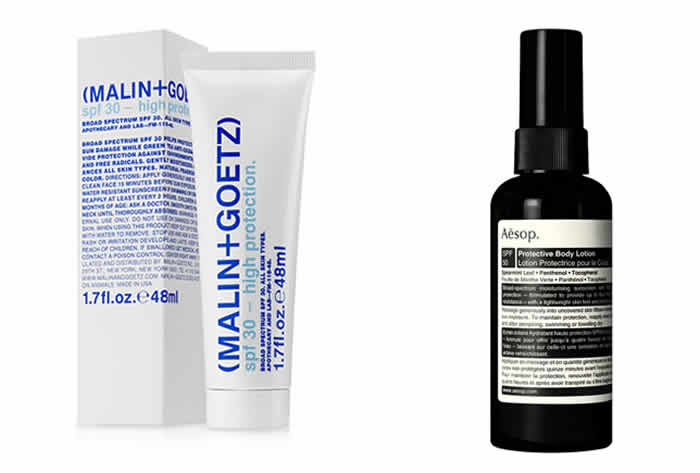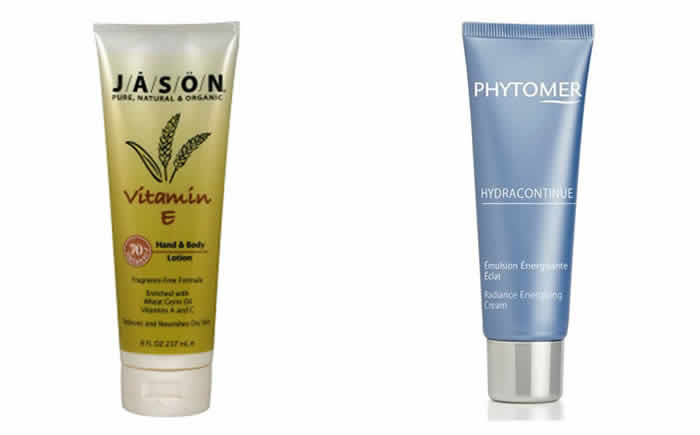Most young men spend so much time worrying about the texture of their shirt that they ignore what’s really important: the texture of their skin. Maintenance doesn’t come to mind until it’s time to repair – often too late.
[contentblock id=1 img=adsense.png]
Whether it’s rashes, wrinkles or acne that’s getting you down, a little time spent on your skin during early adulthood can help keep you looking fresh-faced at 50.
UV Ways
There are few better ways to get your vitamin D kick than the great outdoors, but beach holidays and long hikes transform skin to leather. Photodamaged skin causes premature wrinkles and mottled pigmentation, leading you down the path of the bronzed broads you find in Benidorm. Sunscreen is essential, but not just the cheap slap: you’ll need a product that guards against both kinds of the sun’s harmful UV rays. UVB triggers the tanning process, while UVA speeds up your skin’s ageing.
[contentblock id=2 img=adsense.png]
Both are linked to skin cancer. If you’re seeing your skin begin to wrinkle prematurely, look for products with a strong concentration of glycolic acid or L-Lactic Acid, like Peter Roth products. The journal Archives of Dermatology found creams with 8 per cent concentration of either acid improved sundamaged skin over 22 weeks, boosting healthy skin pigment and smoothness.
Razor’s Edge
For some men, shaving is a minefield unable to be crossed without casualties. ‘Razor burn’, the stinging rash which crops up after a shave, is one of the most pernicious problems. The British Journal of Dermatology found the removal of the skin’s protective barrier (you know, by scraping a sharp blade over it) is what irritates the skin, so when scouting for post-shave moisturisers, look for ingredients like wheatgerm, niacinemide or soybean oil, all of which act as restoratives to help the skin return to normal.
Read More: 5 Grooming Basics Every Man Shouldn’t Skip
The top shaving concern for men, according to the International Dermal Institute? Ingrown hairs. Curly-bearded men, beware: the Institute found bushy, curlier beards more likely to turn into the skin, causing the hair to grow inwards. Like a splinter, the skin identifies the hair as a foreign body, triggering an inflammatory response. Fight fire with fire. In this case, salicylic acid – a chemical containing the same anti-inflammatory ingredient as aspirin.
Spot The Difference
Salicylic acid’s anti-inflammatory properties also work well for rogue spots, as your skin’s reaction to blocked pores are similar to ingrown hairs. The Journal of Cosmetic Sciencenotes its treatment of acne goes hand-in-hand with fighting psoriasis and photodamage. It’s your birthday suit’s utility belt. Unable to rid yourself of unsightly spots? A study in Postepy Dermol Alergol claims that diet is unquestionably associated with acne.
[contentblock id=3 img=gcb.png]
A high-glycemic diet may exacerbate the condition, so try switching to low-GI carbs – sweet potato instead of regular, brown rice instead of white – to banish spots. Keep your face clean, but remember that gentle skincare is essential; as spots are irritated patches of skin, scrubbing with a rough cloth only makes things worse.
Ecz-Men
Adult eczema, or atopic dermatitis to those of you with a doctorate, is a condition that can be contained but rarely cured. Do you have persistent dry, flaky patches of skin that come and go consistently? Time to see a doctor. Common-or-garden moisturiser and basic hygiene – drying hands after washing, for instance – will see off most dry skin issues, but eczema is an underlying genetic problem. Outside of prescription steroid cream and gloves in winter, a fix could be learning to chill out. The journal Acta Dermato Venereologica claims eczema can be exacerbated by stress, as psychological pressure triggers bodily flight-or-fight responses, boosting the hormones responsible for outbreaks. The usual quelling tactics like lifting weights, getting a good night’s sleep and avoiding junk food should put a dampener on unnecessary anxiety, easing off the breakouts when they occur. Until then, it’s doctor’s orders.





